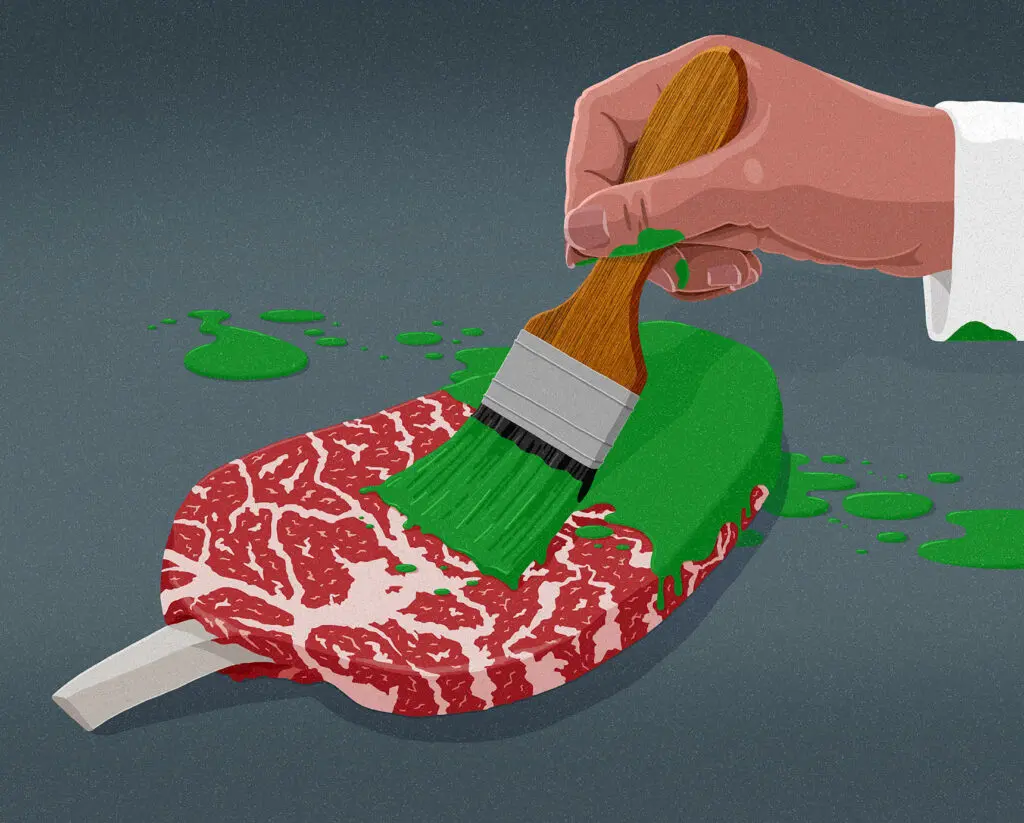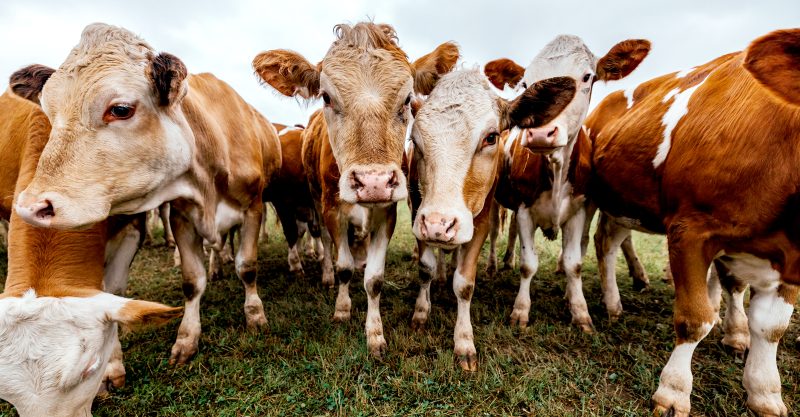Industrial Meat Producers Use Same Playbook as Big Oil, Pesticide Industry to Deceive Consumers
ENVIRONMENT, 16 Aug 2021
The Defender - TRANSCEND Media Service
DeSmog analyzed the public relations and lobbying efforts of industrial meat producers and found the industry is stepping up its game in an effort to cast itself in a climate-friendly light.
23 Jul 2021 – A new investigation by DeSmog reveals how the global meat industry is using a playbook similar to that of Big Oil and pesticide companies to sway public opinion about the true environmental costs of industrially produced meat.
DeSmog analyzed the public relations and lobbying efforts of the meat industry’s key players — JBS, Tyson Foods, Vion and Danish Crown — reviewing hundreds of documents and statements by companies and trade associations.
The investigation found that through “climate-friendly” messaging, the meat industry is portraying itself as a “climate leader” in the following ways:
- Downplaying the impact of livestock farming on the climate.
- Casting doubt on the efficacy of alternatives to meat to combat climate change.
- Promoting the health benefits of meat while overlooking the industry’s environmental footprint.
- Exaggerating the potential of agricultural innovations to reduce the livestock industry’s ecological impact.
DeSmog said:
“Meat producers casting themselves in an environmentally friendly light isn’t a new phenomenon. But increased public pressure for companies to act in a climate-conscious way has caused a step-change in the industry’s PR efforts.”
Demand for meat soars as the planet heats up
Meat production has more than quadrupled in the last 60 years. And according to the United Nations Food and Agriculture Organization, demand is expected to rise as incomes climb in developing nations.
It’s a trend DeSmog says “sets the world on a collision course with the climate targets laid out in the Paris Agreement.”
DeSmog reported:
“A study published in Science last year found that even if emissions from fossil fuels ceased right away, projected eating habits would make it impossible to keep global average temperature rises to 1.5C.”
The looming threat of climate change, coupled with the rising demand for climate action, has the meat industry terrified of regulation.
Kristine Clement, campaign lead of agriculture and forests at Greenpeace Denmark, told DeSmog while the meat industry is hellbent on expanding, it’s also afraid “politicians will stand up and say, ‘No, we can’t continue this endless production of meat.’”
As a result, the industrial meat industry has ramped up its efforts, said DeSmog, to underreport emissions, perpetuate the myth that industrial meat is needed to feed the world and dismiss dietary changes (such as eating less meat).
DeSmog said the meat industry is also focusing more on innovations, such as manure management and methane-capture technologies, that the industry says will drastically lower emissions.
According to DeSmog:
“So far, the meat industry seems to be having considerable success with its climate-friendly communications strategy.
“This could be, in part, because it is benefitting from a general lack of media scrutiny.”
CLICK HERE to read the full report on TMS.
Go to Original – childrenshealthdefense.org
Tags: Big Oil, Capitalism, Corruption, Environment, Meat Industry, Pesticides, Propaganda, Veganism, Vegetarianism
DISCLAIMER: The statements, views and opinions expressed in pieces republished here are solely those of the authors and do not necessarily represent those of TMS. In accordance with title 17 U.S.C. section 107, this material is distributed without profit to those who have expressed a prior interest in receiving the included information for research and educational purposes. TMS has no affiliation whatsoever with the originator of this article nor is TMS endorsed or sponsored by the originator. “GO TO ORIGINAL” links are provided as a convenience to our readers and allow for verification of authenticity. However, as originating pages are often updated by their originating host sites, the versions posted may not match the versions our readers view when clicking the “GO TO ORIGINAL” links. This site contains copyrighted material the use of which has not always been specifically authorized by the copyright owner. We are making such material available in our efforts to advance understanding of environmental, political, human rights, economic, democracy, scientific, and social justice issues, etc. We believe this constitutes a ‘fair use’ of any such copyrighted material as provided for in section 107 of the US Copyright Law. In accordance with Title 17 U.S.C. Section 107, the material on this site is distributed without profit to those who have expressed a prior interest in receiving the included information for research and educational purposes. For more information go to: http://www.law.cornell.edu/uscode/17/107.shtml. If you wish to use copyrighted material from this site for purposes of your own that go beyond ‘fair use’, you must obtain permission from the copyright owner.

